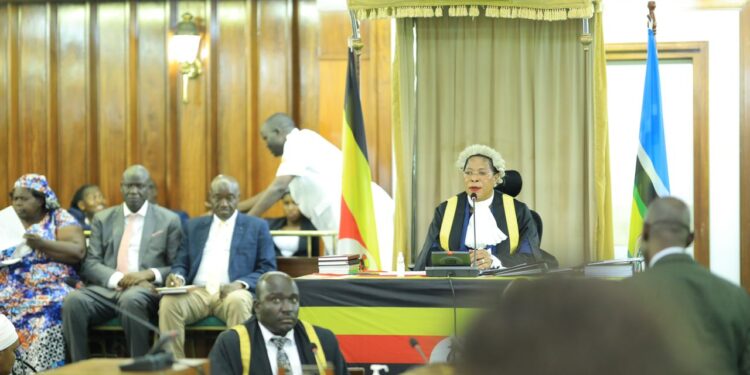A statement from the Minister of State for Energy, Hon. Sidronius Okaasai, on the unmitigated spike in fuel prices has left MPs unconvinced.
Last week, Speaker Anita Among put the Government to task over the escalating fuel prices, but Hon. Okaasai’s statement suggests the government will continue with its non-interference approach on commodity prices.
“Uganda operates a liberalised downstream petroleum market, where pump prices are determined by the forces of demand and supply as guided by the Petroleum Supply Act of 2003 and Petroleum Supply General Regulations (2009) with amendments of 2012 and 2018,” said Okaasai during plenary on Tuesday, September 5, 2023.
Global factors beyond Uganda’s making, he said, are behind the spike, and that there is not much his ministry can do, rattling MPs.
“The surge in global oil demand to record levels, especially during the summer season in Europe and the United States, has put immense pressure on oil prices; thus high demand, driven by seasonal factors and increased economic activity, has contributed significantly to the recent spike in fuel prices worldwide,” he said.
Enraged, Hon. Ibrahim Ssemujju (FDC, Kira Municipality) asked the minister about the much talked about fuel reserves, saying short of solutions, Parliament should not entertain the statement.
“He [Minister Okaasai] should come here and tell us what happened to the reserves, short of which I move a motion without notice for Parliament to reject the statement,” he said.
The Speaker of Parliament, Anita Among, who chaired the sitting, asked the Government to develop a tangible plan to scout around the hikes in prices, instead of folding hands and allowing market forces to determine what becomes of Ugandans.
“The fuel prices have gone up; what is the Government’s immediate, medium and long term plan to address the escalating prices?” she said.
Tanzania led the pack in the current wave of fuel prices escalation in the region, with Uganda now facing the rise in prices.
Neighbouring Kenya recently introduced what the Government there called ‘Fuel Stabilisation Fund’, a form of subsidisation to arrest the rise in prices.
Minister Okaasai, however, stated that his ministry can only ‘monitor the supply’, insisting all factors leading to the spike are external.
“the rising fuels prices in Uganda can be attributed to a combination of global factors, including deepening OPEC + supply cuts, positive macroeconomic sentiment, strong world oil demand, the seasonal impact of the summer season in Europe and the United States, foreign exchange fluctuations, and the notable increase in oil prices,” he said.











